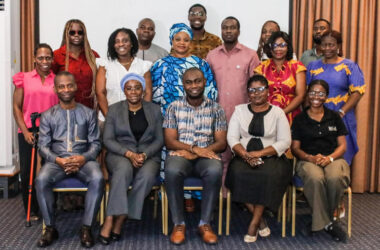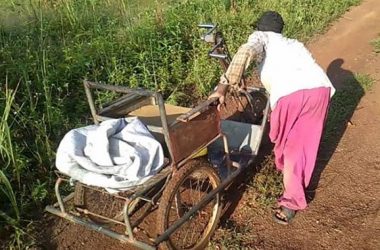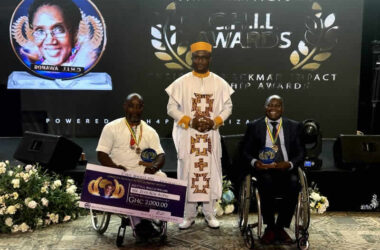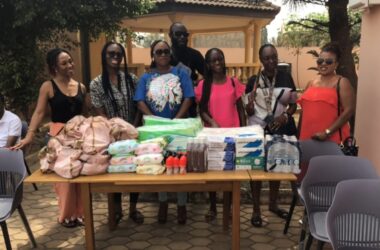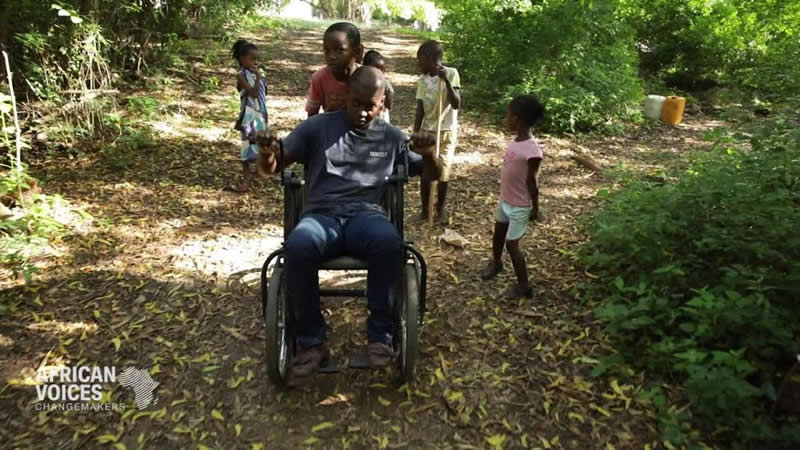 In 2008, while cutting down a tree in Kilifi, a town on the coast of Kenya, Japheth Kenga lost the use of his legs.
In 2008, while cutting down a tree in Kilifi, a town on the coast of Kenya, Japheth Kenga lost the use of his legs.
Kenga’s daily routine was to cut, smooth and sell wood. But on the day of his accident, the tree fell the wrong way. “It was falling and went and hit another tree, then that trunk went up and came back and hit me,” he told CNN. The tree fell on his arm, legs, and waist. He never made a full recovery.For 10 years, Kenga was unable to acquire a wheelchair and had to rely on crutches and his family to move around. That was until he met Ken Mwarandu. In 2018, Mwarandu gifted him an innovative, low-cost wheelchair.
“I couldn’t go far (before), but now that I have this chair, I will be able to visit my friends … or even be able to go to the market to buy vegetables and come back,” Kenga said.
Solving mobility challenges
Mwarandu manufactures the Safariseat, an off-road wheelchair aimed at helping people with disabilities in developing communities.
“Growing up I had a friend who had a mobility impairment, and I saw first-hand how she struggled to operate in the local environment with her physical disability,” Mwarandu told CNN.
His friend struggled to move around her community, and many times she was forced to crawl on her hands and knees to get around. Heartbroken by her lack of access to mobility resources, Mwarandu decided to engineer an alternative.
In 2017, he wrote to the UK-based company that invented Safariseat, proposing to manufacture their open source design. His proposal was accepted, and he launched the first-ever Safariseat manufacturing facility.
“I submitted a proposal to the UK organization that actually designed the wheelchair… There was a series of discussions afterward between myself and the organization, and after the discussions, they decided to grant me money to set up the workshop and that’s how the whole workshop and Safari Seat started in Kenya,” he said. Most days, he can be found in his workshop in Kilifi with his team, piecing together tires and chains to make low-cost wheelchairs for people like Kenga.
Safariseat comes with a suspension system that allows users to balance on rough, untarmacked ground. “All the wheels are independent, that means that the user can go over rocks and logs and the wheelchair will not tip over,” Mwarandu said.
He added that the wheelchair, with a capacity of 150kg, has puncture-proof tires.
Bad environment
In Kenya, 1.16 million people have mobility-related disabilities and more than half of them live in rural areas, according to data from the Global Disability Rights, an international resource center for persons with disabilities.
Mwarandu says the biggest challenge for people with disabilities like Kenga, who reside in rural areas, is the environment they have to live in.
“There are places with a lot of mud or water, or just environments that would be challenging to someone who couldn’t walk,” he explained. “If they don’t have access to a wheelchair, which most people do not, then that means if the person really needs to move … they would basically have to crawl.”
Rural areas often have bad roads, making mobility a difficult task. Safariseat wheelchairs are designed to solve some of these challenges.
160 wheelchairs
So far, Mwarandu has produced 160 wheelchairs, some of which have been donated to communities and persons with disabilities. Mwarandu’s long term plan is to sell more of the wheelchairs to not-for-profit organizations, medical companies and groups focused on solving mobility problems within East Africa.
“Ultimately, we would like to partner with people in different parts of the world … who would be interested in opening up workshops to manufacture Safariseat,” he said.
But the best part of producing Safariseat, Mwarandu says, is impacting the lives of people. “One thing I didn’t expect was the kind of bond you form with the people. They want to find out how you are doing, how is your family.”
Source: CNN

